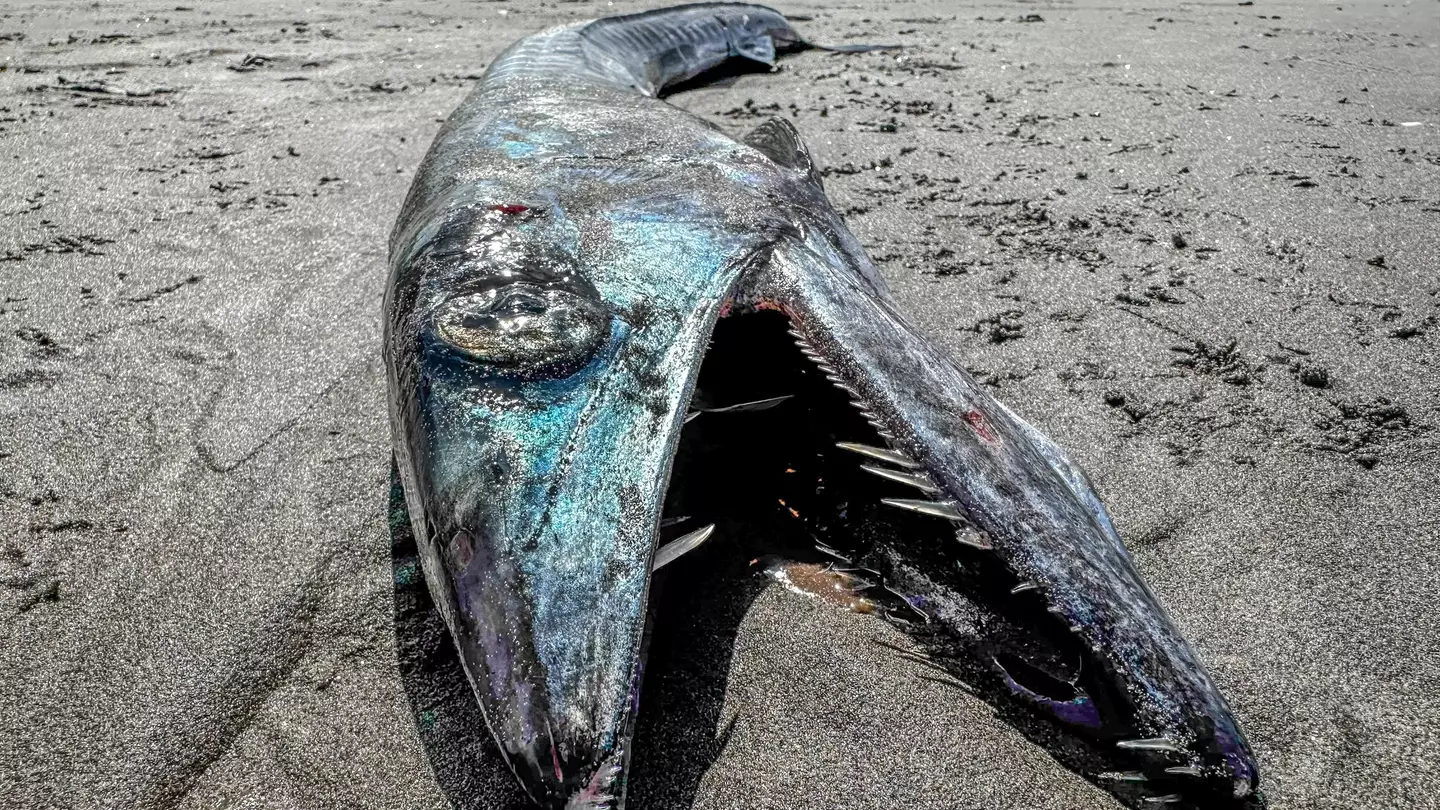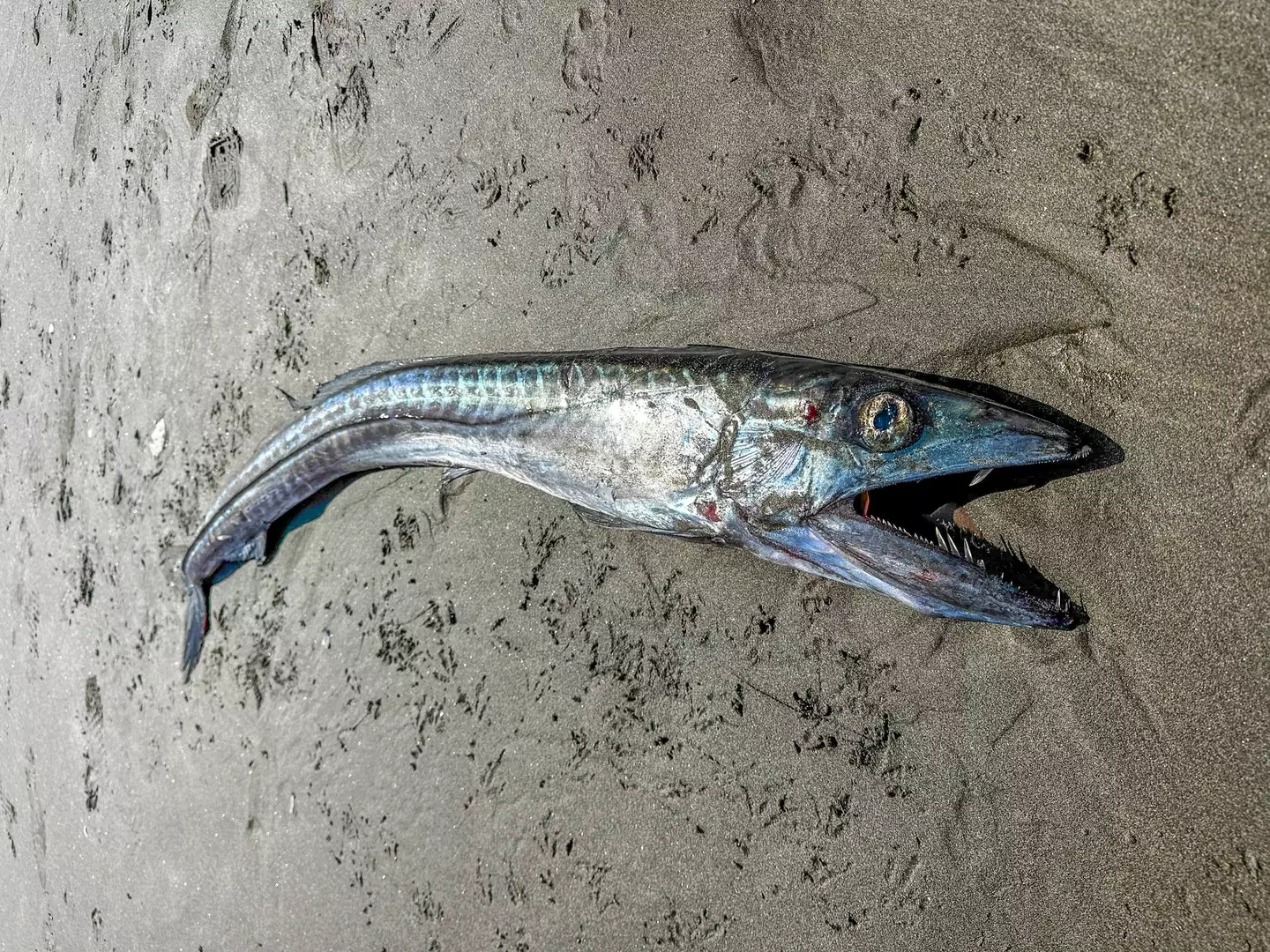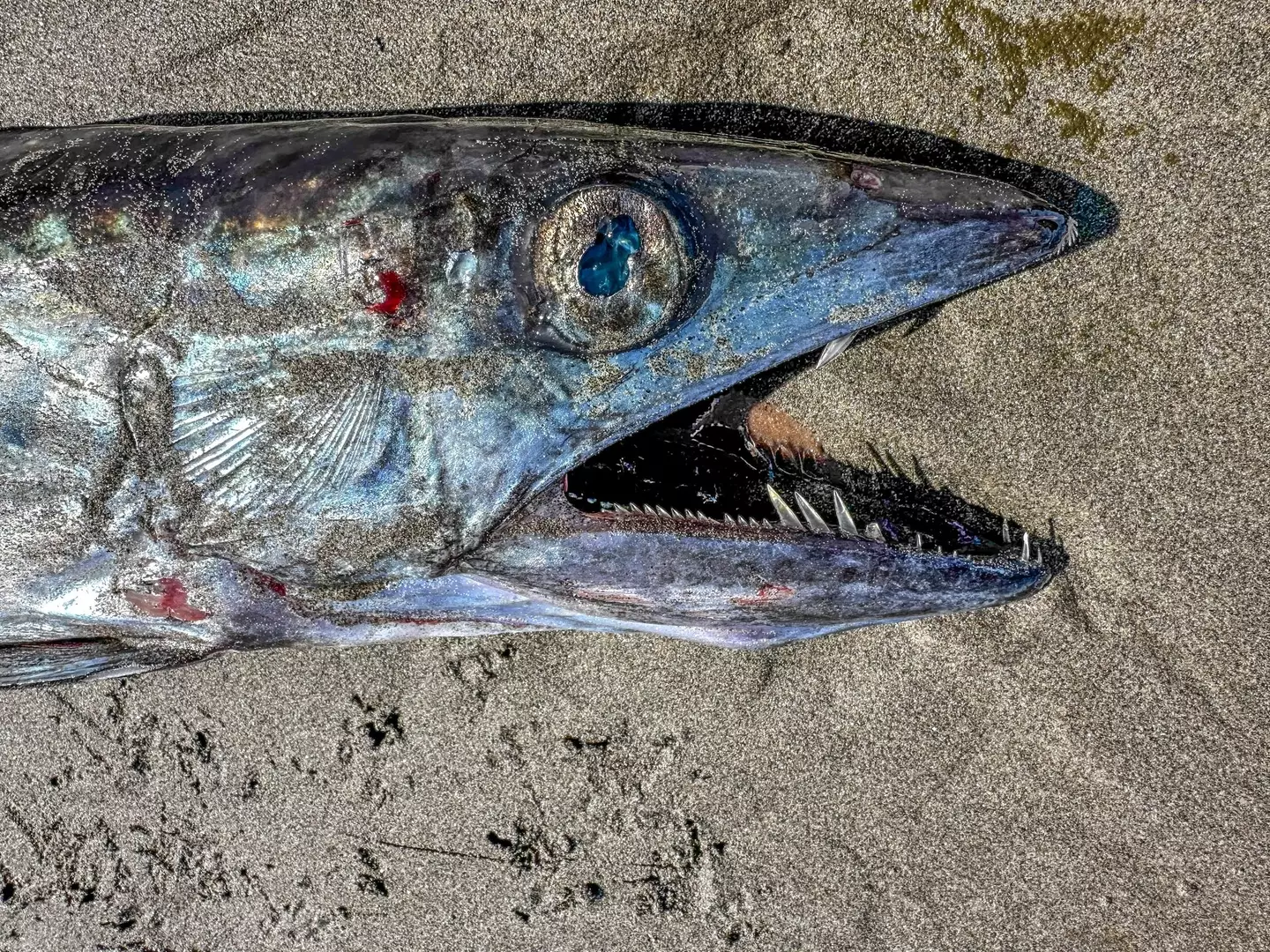
It's not every day a terrifying beast from the darkest depths of the ocean just washes up ashore.
Yet that's what the self-proclaimed 'fish nerds' at the Seaside Aquarium said happened when a rare and frightening deep-sea fish happened to wash up on the Oregon shore recently.
According to USA Today, the crew at the aquarium were familiar with the fish, which has a distinctly long mouth laced with fanged razor-sharp teeth, yet is rarely seen (thankfully) anywhere near the Oregon coast.
A customer had reportedly gone into the gift shop of the aquarium with a snap of the gigantic carcass and showed the very interested staff what he had found in hopes they could help identify it.
Advert
Tiffany Boothe, assistant manager at the Seaside Aquarium, said to the news outlet: "When he showed us the picture, it was such a fresh, great specimen that we were like, 'Sweet, we're gonna go pick it up'."

"We get about a half dozen in our area a year," she added. "It doesn't look like a very friendly fish. If I saw that fish alive, I wouldn't touch it."
The whopping five-feet long animal was soon identified as a longnose lancetfish which typically swim more than a mile beneath the ocean's surface.
They apparently prefer warmer waters but have been known to migrate as far north as the Bering Sea, according to the National Oceanographic and Atmospheric Administration.
Boothe said the lancetfish has 'gelatinous flesh that the seagulls just absolutely go crazy after,' adding that it's usually difficult to 'find ones that are fresh and that intact' as the one they found.
What makes the find even more interesting is lancetfish have a 'really, really slow' digestive system, meaning that ripping its stomach contents open can reveal its most recent meals from whole fish to squids and generally 'things you wouldn't normally see.'
The Seaside Aquarium wasted no time in doing exactly that once they retrieved the fish from the beach and shared the gory details to fans on social media.
In its stomach, they found several squid and octopus remains, plus at least three whole fish.

Writing on Facebook, the team said: "Resembling a barracuda, this is one fish you would not expect to run across along the Oregon coast.
"Their beautiful large eyes, sharp fang-like teeth, and serpent-like body distinguishes this fish from most others living in the Pacific Northwest. Little is known about the longnose lancetfish.
"We know they range from the southern Bering Sea to Chile and occupy surface waters down to 6,000 feet."
More interested in what they eat down there, the aquarium team noted the species aren't particularly 'picky eaters,' being known to chow down on more than 90 different species of marine life including, terrifyingly, each other, and sadly, trash polluting the oceans like plastic.
"By studying what the longnose lancetfish is eating scientists can better understand how the marine food web changes over time (if at all)," they continued. "It may also help understand changes in the food web brought on by events like El Nino or La Nina."
According to NOAA, they are known as 'Twilight Zone' fish because of the sheer depths they hunt to and can grow up to seven-feet long and come in at around 20 pounds.
They also boast a 'dinosaur-worthy scientific genus name,' Alepisaurus, meaning 'scaleless lizard.'
Topics: Science, US News, Animals, Nature, Environment, Climate Change